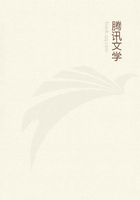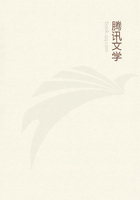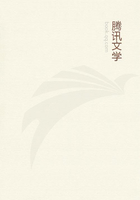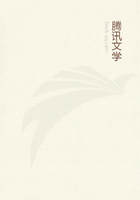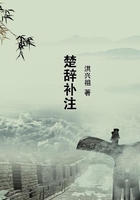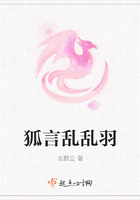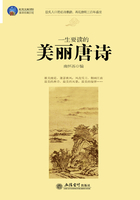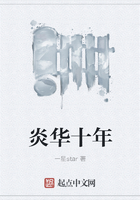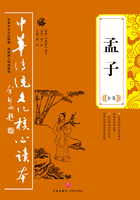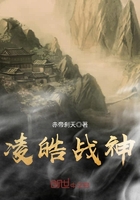The Indian philosophers called character, as thus defined, "karma." It is this karma which passed from life to life and linked them in the chain of transmigrations; and they held that it is modified in each life, not merely by confluence of parentage, but by its own acts. They were, in fact, strong believers in the theory, so much disputed just at present, of the hereditary transmission of acquired characters. That the manifestation of the tendencies of a character may be greatly facilitated, or impeded, by conditions, of which self-discipline, or the absence of it, are among the most important, is indubitable; but that the character itself is modified in this way is by no means so certain; it is not so sure that the transmitted character of an evil liver is worse, or that of a righteous man better, than that which he received. Indian philosophy, however, did not admit of any doubt on this subject; the belief in the influence of conditions, notably of self-discipline, on the karma was not merely a necessary postulate of its theory of retribution, but it presented the only way of escape from the endless round of transmigrations.
The earlier forms of Indian philosophy agreed with those prevalent in our own times, in supposing the existence of a permanent reality, or "substance," beneath the shifting series of phenomena, whether of matter or of mind. The substance of the cosmos was "Brahma," that of the individual man "Atman;" and the latter was separated from the former only, if I may so speak, by its phenomenal envelope, by the casing of sensations, thoughts and desires, pleasures and pains, which make up the illusive phantasmagoria of life. This the ignorant take for reality; their "Atman" therefore remains eternally imprisoned in delusions, bound by the fetters of desire and scourged by the whip of misery. But the man who has attained enlightenment sees that the apparent reality is mere illusion, or, as was said a couple of thousand years later, that there is nothing good nor bad but thinking makes it so. If the cosmos is just "and of our pleasant vices makes instruments to scourge us," it would seem that the only way to escape from our heritage of evil is to destroy that fountain of desire whence our vices flow; to refuse any longer to be the instruments of the evolutionary process, and withdraw from the struggle for existence. If the karma is modifiable by self-discipline, if its coarser desires, one after another, can be extinguished, the ultimate fundamental desire of self-assertion, or the desire to be, may also be destroyed.
Then the bubble of illusion will burst, and the freed individual "Atman" will lose itself in the universal "Brahma."
Such seems to have been the pre-Buddhistic conception of salvation, and of the way to be followed by those who would attain thereto. No more thorough mortification of the flesh has ever been attempted than-that achieved by the Indian ascetic anchorite; no later monachism has so nearly succeeded in reducing the human mind to that condition of impassive quasi-somnambulism, which, but for its acknowledged holiness, might run the risk of being confounded with idiocy.
And this salvation, it will be observed, was to be attained through knowledge, and by action based on that knowledge; just as the experimenter, who would obtain a certain physical or chemical result, must have a knowledge of the natural laws involved and the persistent disciplined will adequate to carry out all the various operations required. The supernatural, in our sense of the term, was entirely excluded. There was no external power which could affect the sequence of cause and effect which gives rise to karma; none but the will of the subject of the karma which could put an end to it.
Only one rule of conduct could be based upon the remarkable theory of which I have endeavoured to give a reasoned outline. It was folly to continue to exist when an overplus of pain was certain; and the probabilities in favour of the increase of misery with the prolongation of existence, were so overwhelming. Slaying the body only made matters worse; there was nothing for it but to slay the soul by the voluntary arrest of all its activities. Property, social ties, family affections, common companionship, must be abandoned; the most natural appetites, even that for food, must be suppressed, or at least minimized; until all that remained of a man was the impassive, extenuated, mendicant monk, self-hypnotised into cataleptic trances, which the deluded mystic took for foretastes of the final union with Brahma.
The founder of Buddhism accepted the chief postulates demanded by his predecessors. But he was not satisfied with the practical annihilation involved in merging the individual existence in the unconditioned--the Atman in Brahma. It would seem that the admission of the existence of any substance whatever--even of the tenuity of that which has neither quality nor energy and of which no predicate whatever can be asserted--appeared to him to be a danger and a snare. Though reduced to a hypostatized negation, Brahma was not to be trusted; so long as entity was there, it might conceivably resume the weary round of evolution, with all its train of immeasurable miseries. Gautama got rid of even that shade of a shadow of permanent existence by a metaphysical tour de force of great interest to the student of philosophy, seeing that it supplies the wanting half of Bishop Berkeley's well-known idealistic argument.

